Co-owner Tom Brady has overseen infrastructure improvements at Birmingham, but from sacking popular manager John Eustace in October, little has gone right on the pitch; Blues could be relegated to League One if they lose to Huddersfield on Saturday
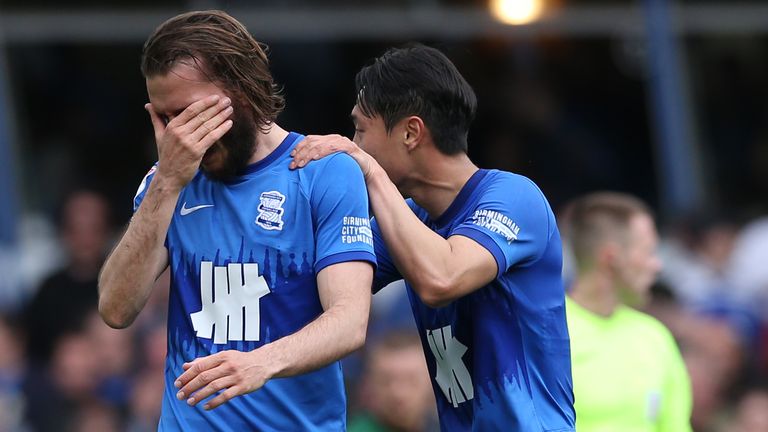
Image: Birmingham could be relegated with unfavourable results elsewhere if they lose to Huddersfield on Saturday
As new investors Tom Wagner and seven-time Super Bowl champion Tom Brady took in the plaudits on their first visit to Birmingham City last summer, everything finally seemed rosy after years of turmoil in B9.
A last-minute penalty had just beaten promotion hopefuls Leeds in the second of what would be a five-game unbeaten streak to start the season. After 10 games, Birmingham sat fifth following a commanding 3-1 win over local rivals West Brom, in front of their largest home crowd since before the pandemic.
Dilapidated areas of St Andrew’s, left in such disrepair that whole stands had been shut the previous season, were back open – and gleaming. The broken old showers in the home dressing room were finally fixed. The players’ tunnel had been decorated with inspirational quotes and pictures. Finally, this house felt like home again.
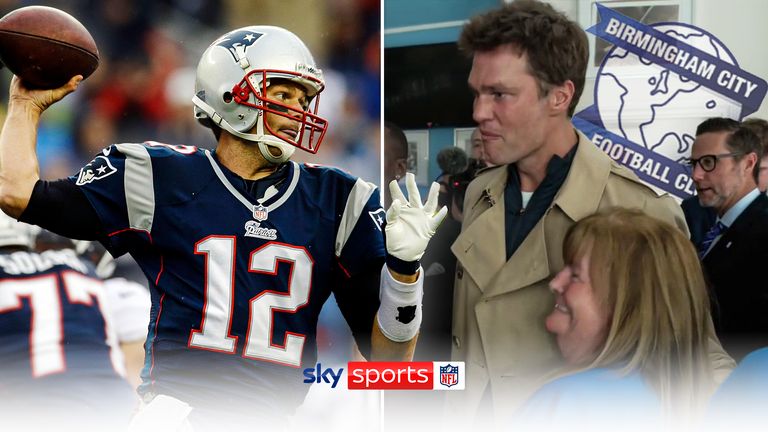
Tom Brady was pictured with Birmingham fans in a local pub the night before his first visit to St Andrew’s in August
“We are not here for a short period of time, we are here for the long haul,” said Wagner, the new club chairman, following that first home win of the season. “All of our decisions are focused on what’s best for the club in the long term.”
Football is never simple. Good times rarely last too long, and words are easy. But even with the unwanted helping of deja vu, that quote would come back to haunt Wagner, Brady and Birmingham quicker than anyone could have imagined.
- Race for the Premier League: Leeds could promote Leicester on Friday night
- Behind the Whistle: Championship, League One and League Two decisions analysed
Defeat to Huddersfield on Saturday, coupled with unfavourable results elsewhere, would see them relegated to League One for the first time in 30 years.
To paraphrase the poetry of Birmingham fan Mike Skinner, how has it come to this?
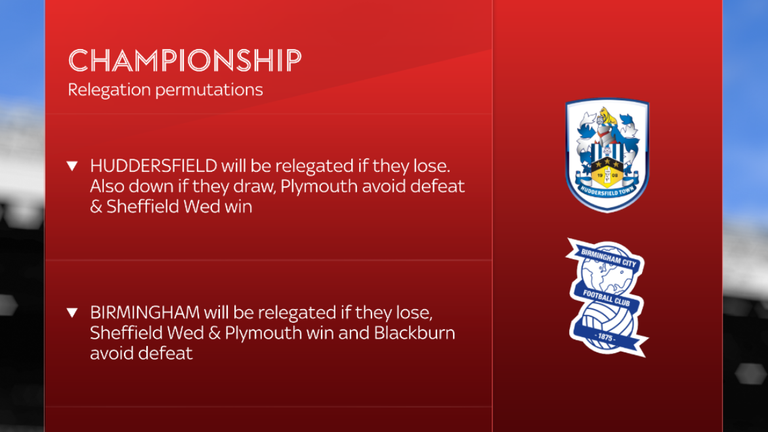
That West Brom game would prove to be John Eustace’s last in charge. It would be unfair to put the blame for what followed solely on the decision to replace him with Wayne Rooney, whose short managerial career had shown signs of promise but moments of concern too. But it sewed many of the seeds of the demise.
It seemed the new super-star owners had similar designs for the role of their head coach, hence bringing in one of the game’s most recognisable faces of this century. But the suitability to the main role of coaching Birmingham’s players was perhaps given less consideration than it might have been. And soon, results began to show it.
- LIVE Championship table | Watch free highlights
- Stream the Championship and more with NOW
- Get Sky Sports | Download the Sky Sports App
“The new bosses asked for patience, and trust,” recalls Sky Sports News senior reporter Rob Dorsett. “Their reasoning was clear: in order to compete with the big clubs, Birmingham needed to expand their commercial base, grow the revenue streams.
“Rooney, as a global sporting icon – alongside another one in Brady – could help achieve that. And Garry Cook, the new chief executive who’d previously been at Manchester City, together with Craig Gardner the director of football, believed Rooney could also help take Blues to a new level on the pitch.”
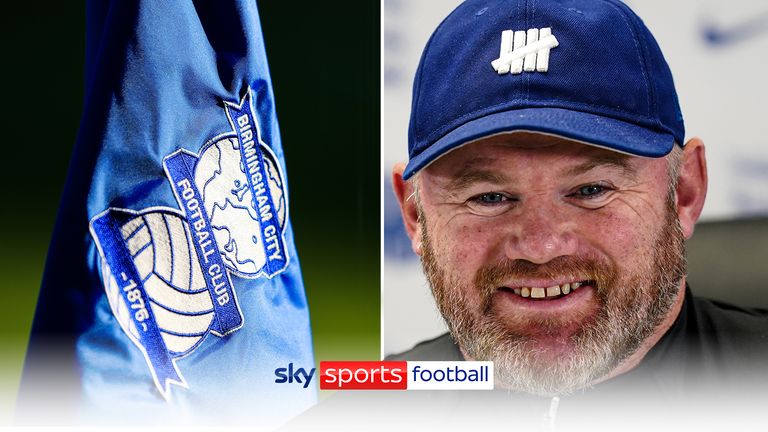
Wayne Rooney said his main target as Birmingham City manager was promotion back to the Premier League – but he lasted only 15 games in charge
Rooney certainly did that, though not in the way the new owners had intended. One win from his first nine games, coupled with increasing public outbursts questioning his players’ desire, sapped the positive spirit around St Andrew’s. As they were soon replaced with boos, he called for patience – but even he could not deny he understood the fans’ frustration.
“My job is to improve them as players so in the next six months we hope there will be changes because you want to bring players in and players will leave,” he said after one of the worst of those results, a dull 0-0 against Rotherham – who themselves had won only twice all season.
Six months was optimistic given the stone-like drop of his Birmingham reign. Plummeting from fifth to 20th in 15 matches was enough egg on the faces of Brady and Wagner that something had to be done.
There were obvious parallels between Rooney’s appointment and that of Gianfranco Zola under Birmingham’s old owners, Trillion Trophy Asia. Like Rooney, he had replaced a popular manager – on that occasion, Gary Rowett – who had them fighting for promotion.
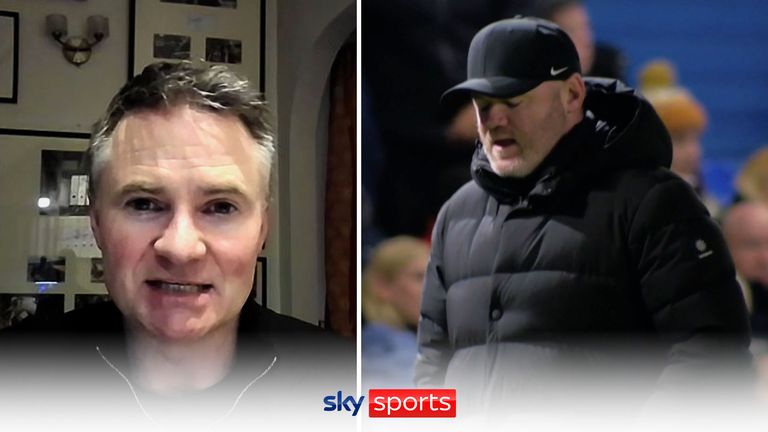
Sky Sports News’ Rob Dorsett explained why the Birmingham hierarchy made the decision to sack manager Wayne Rooney after just 15 games in charge
Like Rooney, Zola had been an unmitigated disaster. Rooney was gone less than three months into a three-and-a-half-year contract which was said to be worth around £5m.
“There was significant mitigation for Rooney, who faced a baptism of fire and a raft of injury problems which blighted his squad,” adds Dorsett. “But Birmingham turned to the safe hands of the hugely experienced Tony Mowbray. Surely he could steady the ship.”
Mowbray had been dealt a tough hand in recent roles, leaving jobs at Blackburn and most recently Sunderland with both on the brink of the play-offs – so no-one could say he was unfamiliar with Birmingham’s recent plight.
He had been brought in as a firefighter at Coventry and then Blackburn, and had an instant impact in both roles. Sure enough, 10 points from six games followed, including especially sweet back-to-back wins over his most recent two clubs which lifted them back to 15th with a six-point cushion above the bottom three.
But then another moment – which has made Birmingham’s downfall more complicated than any one specific incident – struck suddenly.
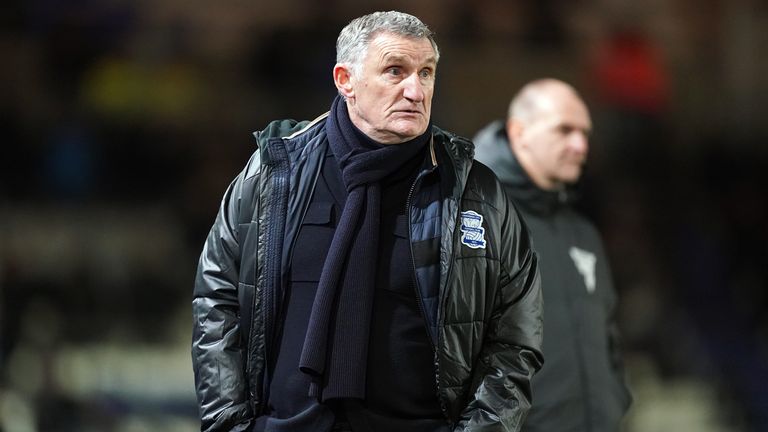
Image: Tony Mowbray oversaw 10 points from his first six games in charge before a serious issue saw him forced to take sudden medical leave
Two days after he had been in the dugout to mastermind that win over Sunderland, Mowbray required medical treatment serious enough it would eventually rule him out until the end of the season, and which has still not been publicly disclosed.
“After a difficult period where the club tried to bide its time in the hope Mowbray would be well enough to return, the decline on the pitch continued in the absence of a permanent manager,” says Dorsett, after a disastrous run of one point from six games under Mowbray’s assistant Mark Venus.
“The hierarchy had no choice but to make another managerial change, with Rowett returning to the club to take charge for the final eight games, to try to save their season and avoid the drop into League One.”
The irony of Rowett’s return and the manner of it, taking over the same kind of sinking ship which had followed the end of his first spell in charge, was not lost.
But Birmingham needed something quick, and Rowett had been out of work since he was sacked by Millwall in October.
Datawrapper This content is provided by Datawrapper, which may be using cookies and other technologies. To show you this content, we need your permission to use cookies. You can use the buttons below to amend your preferences to enable Datawrapper cookies or to allow those cookies just once. You can change your settings at any time via the Privacy Options. Unfortunately we have been unable to verify if you have consented to Datawrapper cookies. To view this content you can use the button below to allow Datawrapper cookies for this session only. Enable Cookies Allow Cookies Once
His first seven games in charge have yielded seven points, which would have been enough to keep them above water for much of the season – but with their relegation rivals finally picking up form, Birmingham now sit 22nd in the table, a point from safety, with two games to go.
“With the third tier a distinct possibility, there is a strange feeling around St Andrew’s,” adds Dorsett. “If you ask most fans if they’d swap where they are now from where they were a year ago, most would still snap your hand off.
“A fortnight ago, Knightshead unveiled ambitious plans for a brand new 60,000-seater stadium and new commercial ventures, even whilst the team were in the middle of a relegation battle. Those development plans would continue, they said, even if the team were to drop into League One.
“It’s that promise of a much brighter future, which is making the short-term bitterness of possible relegation sweet enough for the fans to stomach.”
Of course, only a Birmingham fan especially enthusiastic about trips to Shrewsbury and Exeter would look forward to dropping down to League One, but after years of misery on and off the pitch, at least one of those is looking bright now.
It appears Wagner and Brady, though perhaps premature with some of their early chest-out comments, are as good as their word. And so whatever happens at St Andrew’s on Saturday, the visible board presence, the revitalised stadium and the promise of a new one to come offer more hope than any survival bid could.
It’s been a rollercoaster nine months for the Bluenoses’ new owners, but this is just the first hill of many.
Sourse: skysports.com